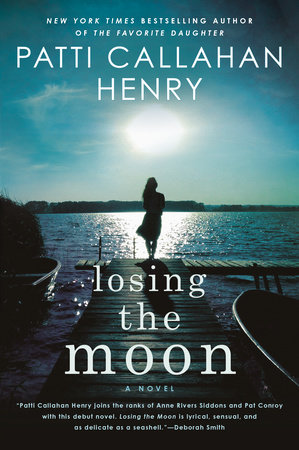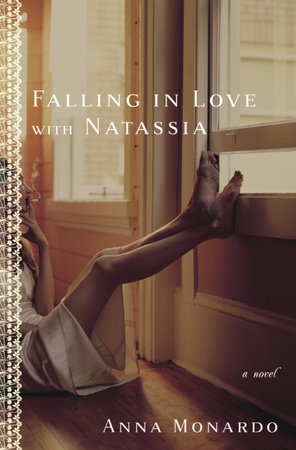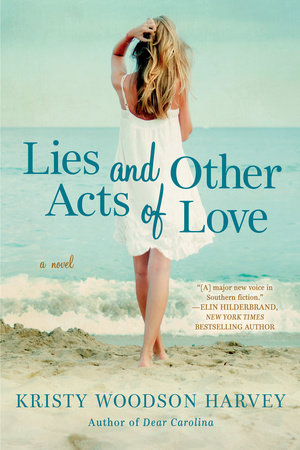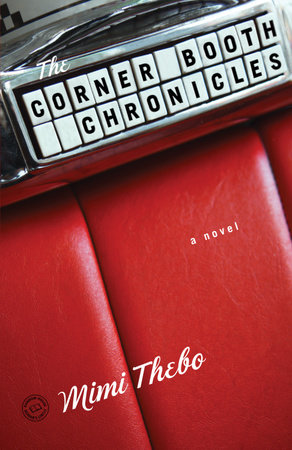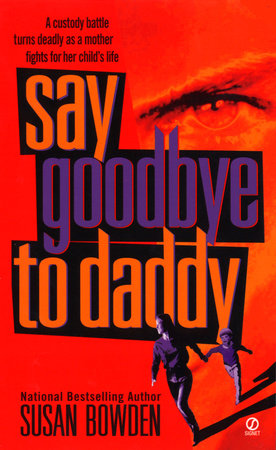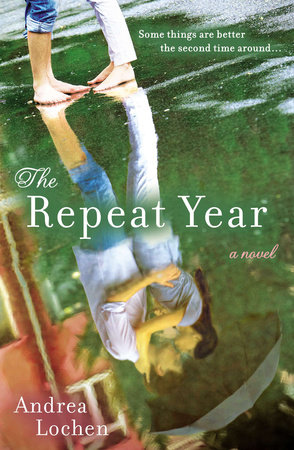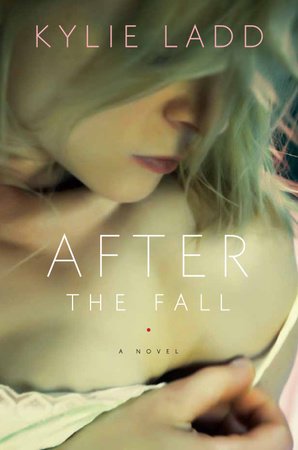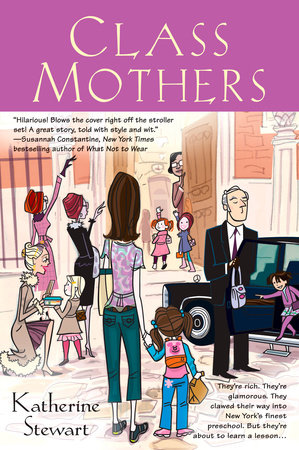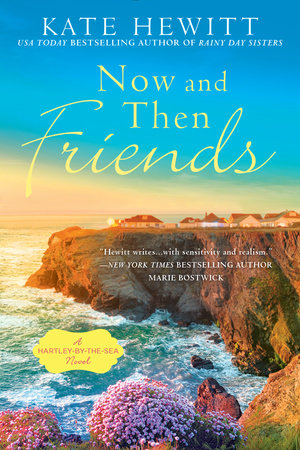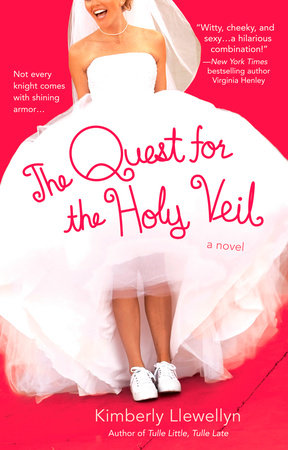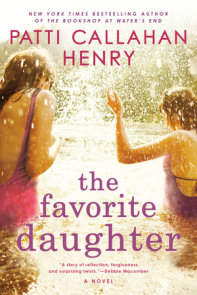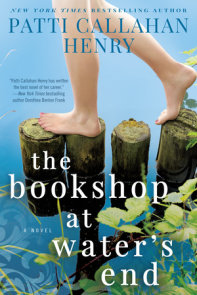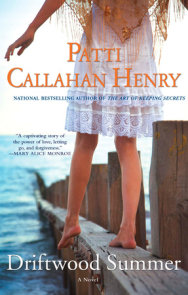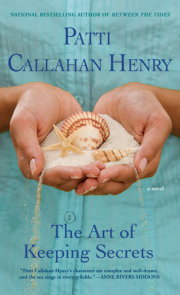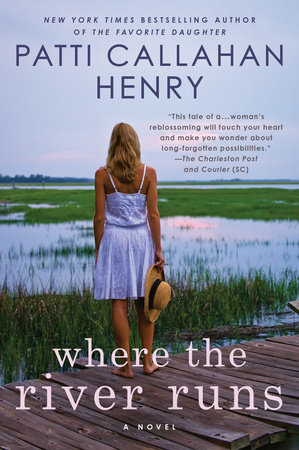Author Q&A
A CONVERSATION WITH PATTI CALLAHAN HENRY
Q. What inspired you to write this novel?
A. I wanted to portray the multiplicity of ways in which desire effects even the most settled life—how desire can reveal to someone who they really are, and shine a light on aspects of their character that they have been ignoring. As often happens when a writer tackles a vague idea, I began to ask “what if?” What if your son or daughter began to date your first lover’s son or daughter? What if there were unresolved issues that echoed during the years when you and your first love didn’t see each other?
The endless complications and multifaceted dimensions of love and desire fascinate me—the promises these feelings prompt us to make. I have been married for thirteen years and dated my husband for four years before getting married. The richer connection that grows in a stable marriage is often different from the relationship one has with a first love. I didn’t begin to date my husband until after college so he was not my first ‘boyfriend’ and although my husband is nothing like either Phil or Nick in LOSING THE MOON, I wanted to portray two entirely different types of love: first love, with its intense emotions; and marital love, with its subtler, potentially deeper rewards.
Q. LOSING THE MOON is your first novel. Can you tell us something about how you became a writer, and what led to this publication?
A. My first novel—actually a memoir–was called “My Life” and was never published. I wrote it when I was twelve years old. Although I’ve been writing ever since then, professionally I pursued a medical career—I am a nurse with a Master’s degree in Pediatrics.
Four years ago, I finally understood that writing is all I’ve ever really wanted to do. When I knew I had no choice—that writing was a necessary part of who I was—I pursued it as seriously as I did my master’s degree. It became essential that I take classes, read books on writing, and actually write every day.
Writing and selling this novel required an incredible belief in myself, along with persistence, courage, faith, serendipity, and a willingness to study the craft of writing. The catalyst for each step of the journey was the decision—the commitment to write. For more on my writing and publication history, visit www.patticallahanhenry.
Q. The setting of LOSING THE MOON, Georgia’s Lowcountry, plays an important role in shaping the story and its characters. Why did you decide to set the novel there, and what about that part of the country particularly inspired you?
A. The moss-draped Lowcountry is where my heart truly resides, where I feel the most alive–as if I can hear the earth’s heartbeat. I believe people have a landscape or geography that speaks most clearly to their spirit. I grew up spending summers on the craggy coast of Cape Cod and maybe that’s where the sea and marsh began their call to me.
I consider the Lowcountry setting to be as essential a character in the novel as the people who occupy it. I chose the Lowcountry for Amy and Nick because it is seductive—lush, overgrown, frivolous, passionate, mystical, and dangerous, just like Nick and Amy’s relationship. My intention was to use the setting to both bring them together and to echo their dilemma.
Q. The idea of a former lover who reenters a woman’s life in her middle years seems to have enormous appeal to women. Judging from your own experiences, and those of your friends and family, why do you think that is?
A. A woman’s middle years seem to be a time for reevaluating life. How did I get here? Do I want to be here? Have I made the right decisions? This is when questions rise to the surface, when the exhaustion of raising young children may have worn off and women revisit their life goals. Memories of a past love, and the feelings associated with it, may also return when times are hard or when life seems emptier than one expected—one may then imagine the “road not taken.”
Often (not always, by any means), memories of a first love carry a strong sense of possibility and passion. Memories of these feelings—the pungent, almost innocent and intense emotions of first love—seem easier, simpler than the complicated emotions involved in committed or broken relationships. Of course this is just an illusion, but first love seems to carry a certain longing and reminds some women of a time when love wasn’t so much an act of will, but of pure, raw sensation.
Q. At the beginning of the book you quote a passage from C. S. Lewis’s The Screwtape Letters. Why did you choose that particular sentence? How does it relate to the book, and what personal meaning does it have for you?
A. C.S. Lewis (1898-1963), a scholar and teacher at both Oxford and Cambridge Universities who is best known for his Narnia Chronicles for children, was an atheist for most of his early life and converted to Christianity in 1931.
A talented debater and writer, Lewis published many works on a wide variety of topics—but the subjects that most interest me, especially as a writer, revolve around his exploration of human longing and the search for meaning. His writing has inspired me since I read The Lion, the Witch, and the Wardrobe as a child. The Screwtape Letters offers profound insights into human nature.
The quote I chose echoes the theme of Amy and Nick’s story. When the novel opens, both of them have become deadened to their feelings about their lives, marriages,
and goals. First, they need to feel again. Seeing each other is the catalyst that raises “them to a level of awareness where mortal sin [becomes] possible.” But the sin is only possible—they must choose whether or not to act on the temptation. I believe it is most often a person, and the emotion that person evokes, that raises another person’s awareness.
Amy and Nick have become “passively responsive” to their lives, marriages and circumstances. They’ve quietly accepted the way things are. Seeing each other, remembering what they felt for each other and what they meant to do and be in life, marks a new beginning and a major dilemma for them.
Q. LOSING THE MOON is told in the third person, using “she” and “he,” from Amy and Nick’s points of view. Yet as a reader I feel as if I am right inside their heads, almost as if the book were told from the first person “I” point of view. Can you tell us why you chose to use third person, which sometimes creates more distance between the author and the reader, and how you keep the reader so in touch with Amy’s and Nick’s thoughts and emotions?
A. I originally wrote this story in the first person from Amy’s point of view until I realized how strong Nick’s story and motivations were. When he stepped (or in the case of Nick, strode) onto the page, I understood the story must also be told from his point of
view. The novel then moved into the third person in the next draft. There went my original idea that I just had to write the novel once, and it would be ready for publication!
The third person point of view can create some distance, but in this case I worked hard to not just narrate the events but also convey Nick and Amy’s unique emotional perspectives. Amy’s “voice” as well as her perspective are completely different from Nick’s voice and his perspective on the same events.
Memory and desire are the key ingredients in this story. The reader must be able to feel Amy and Nick’s longing and understand their reasoning to become fully engaged in the story. I wrote each scene asking what each felt—what the particular place, action, interaction meant to each of them.
Q. You’re a wife and the mother of three small children. How do you manage your hectic schedule and still find time to write?
A. Ah, the bottom line is that I don’t find the time, I make the time. Right now I am typing downstairs early in the morning while my three children are asleep upstairs. I have about fifteen minutes before I must wake them for school.
Although writing has always been a constant desire, the commitment came to me four years ago. We tend to fill our lives with so much “to do” that we forget “to be.” And part of writing involves allowing the “being.” I had to reassess my commitments and
obligations, then let go of certain activities to allow room to write. But I felt I had no choice—the writing was too important.
Most days I rise before the sun to write. I also carve out specific times during the day. I believe this is very hard for all writers—especially when they are unpublished. Making and committing time is difficult in the blazing glare of the critical world with its demand to know exactly what you are doing with your time.
I’ve made a commitment that I believe in and I do it even when I don’t feel like it. That said…achieving balance is a battle I win some days and lose many days. But writing is a joy and a journey. When I get it all just right, I’ll let you know.
Q. What did you hope to achieve in writing this novel? What did you want to convey most strongly to readers? Do you feel you succeeded?
A. I hoped to write a story that would accomplish several things: touch the heart, maybe inspire a few people to consider what they most long for, and finally, to entertain and spark some interesting discussion.
I attempted to show that we all have places or people in our lives that—if only for a moment—make us feel like the people we were always meant to be. Often people abandon their dreams until someone or something comes along and awakens them. Then
the question becomes—can the person, place or thing who awakened our desire satisfy it,
or are they only a reminder of what we really want, who we really are? Each person will
have his own answer to this question. I only give you, the reader, Nick’s and Amy’s answers. Only you, the reader, can tell me if I’ve succeeded in all I set out to do when I wrote LOSING THE MOON.
Q. What writers are particular favorites of yours and how have they inspired you? What are you working on now?
A. As I mentioned before, my avid reading began in childhood with C. S. Lewis and The Lion, the Witch and the Wardrobe and E. B. White’s Charlotte’s Web. As a teenager, I read Margaret Mitchell’s Gone With The Wind. Madeline L’Engle, Anne Lamott, and Julia Cameron have deeply influenced my view of the art of writing. These days, I adore the wit and wisdom of Deborah Smith and Dorothea Benton Frank. I admire the imagery of Elizabeth Berg and Anita Shreve.
The lyrical prose, deep emotion, and excellent craftsmanship of novels by Anne Rivers Siddons and Pat Conroy amaze me. These writers somehow know how to take the deeper places of hurt and transform them into poetry. I don’t believe there is anything they’ve published that I haven’t read. That Deborah Smith has compared my work to theirs leaves me speechless.
Beyond that, I’m now deep into writing my second novel and am saving for another time lots of wonderful work by writers I greatly admire.
